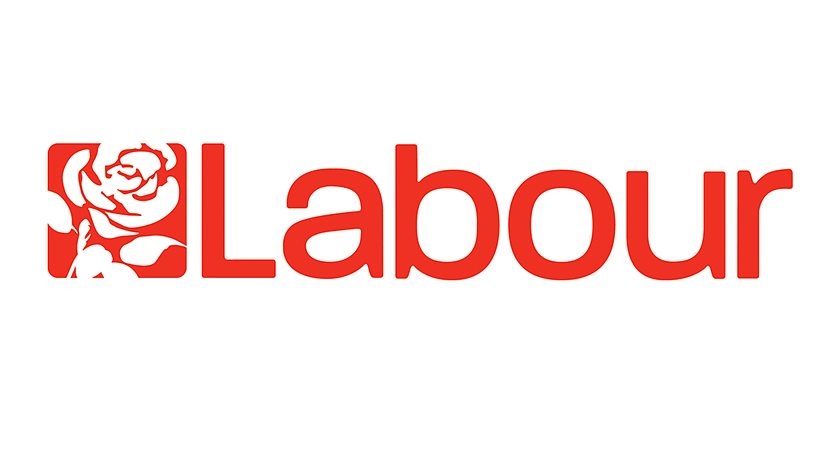IN THE days when being leader of the Labour Party meant having the ability to command the confidence of the majority of your parliamentary colleagues, its election process would likely be almost over.
Five candidates made the next round of contest: Rebecca Long-Bailey, Lisa Nandy, Jess Phillips, Sir Keir Starmer, and Emily Thornberry. They respectively have the support of 33, 31, 23, 88, and 23 of their parliamentary colleagues.
Before 1980, Keir Starmer would be home and hosed.
A PLURAL APPROACH
Clive Lewis, who withdrew from the leadership contest, forcefully made the case for Labour to stop behaving like the Exclusive Brethren: “The litmus test of survival for Labour is pluralism – the recognition that we as one party don’t and can’t have all the answers to the complex challenges we face. We are going to have to collaborate.
“It’s not that we can’t win alone, it’s that we can’t change society alone. Since 1918, there have been 28 elections and Labour has only won eight of them, often with small majorities and a short government.
“Labour can no longer impose a future on the country, instead it must negotiate one.”
REBECCA LONG-BAILEY
Ms Long-Bailey, whose media performances during the campaign were only ‘good’ relative to the comic relief offered by current deputy leadership contender Richard Burgon, is favoured by those most closely associated with Jeremy Corbyn’s argument-winning tenure.
She has already drawn the support of party-within-a-party Momentum. Or at least its executive, as members were not allowed a vote. Momentum members have been subsequently presented with a ballot paper for the Labour leadership with only Ms Long-Bailey’s name on it. Democracy in action.
As someone who said she would give the departing Labour leader 10/10 and accepted responsibility for Labour’s last manifesto, she will also attract the votes of those who are intent on campaigning in purity instead of governing (all governments do) through compromise.
In her candidate statement, Rebecca Long-Bailey acknowledges the defeat and calls upon the Party to look inward to establish the reasons why, saying: “We had a chance to help turn back the tide, but we failed. The starting point in the leadership election is to be honest and self-critical about why and then look forward and forge our path to power.
“We have another round of elections in May [not in Wales] and the escalating crises we face mean that building a winning vision of a socialist future has never been so urgent.
LISA NANDY
Lisa Nandy received only two fewer nominations, despite – unlike Ms Long-Bailey – having had virtually no public profile in the 2019 election campaign. That low level of exposure for an effective media performer followed her walking out of Labour’s Shadow Cabinet over Jeremy Corbyn’s leadership in 2016 and declining to return.
She also backed the UK Government’s Withdrawal Agreement in a key vote in October 2019 and cannot, therefore, be charged with facing two ways on the Brexit issue.
At the hustings held for candidates before the Parliamentary party, Lisa Nandy reportedly made the best impression, giving a clear indication of what Labour needed to do to recapture lost votes, look outward and not navel-gaze looking for utopia.
Making her pitch as an outsider, at her campaign launch Ms Nandy said: “The stark truth is, the path back to power for Labour will never be to build along the ‘red wall’.”
“If we do not change course we will die and we will deserve to. This is the moment when we up our game and recover our ambition.”
EMILY THORNBERRY
Emily Thornberry, who regularly humiliated Boris Johnson when she shadowed him as Foreign Secretary and took regular delight in butchering Theresa May’s stand-ins at PMQs until she was replaced by Rebecca Long-Bailey to dismal effect, is a strong and experienced parliamentarian.
She is also the MP who had to resign from Ed Milliband’s frontbench team after a hopelessly misjudged and snobbish tweet during a by-election campaign in Rochester.
Ms Thornberry has the inestimable advantage among remain-backing CLPs to have stuck to her guns on the membership’s wish to unequivocally support remaining in the EU. In the changed political landscape, however, that strength could prove an electoral millstone with the voting public.
Unless Brexit turns out to be a political and economic catastrophe, it is difficult to see how Emily Thornberry will break through to the voters Labour lost in the last election. Although, of course, that presupposes that the unions and membership want to win an election on something other than a sectarian basis.
JESS PHILLIPS
Jess Phillips is, perhaps, the most outside of outsiders. She was a constant thorn in the last Government’s side only slightly more often than she was a thorn in Jeremy Corbyn’s. She has never held a frontbench position.
Boris Johnson’s public school debating style does not impress her and clashes between the pair are always ‘direct’.
Her pitch is based upon her ability to connect with voters on a personal level and on emphasising her ‘speaking truth to power’.
In her candidate statement, Ms Phillips says: “I’ve never shied away from speaking out when I thought we were doing the wrong thing – whether that was the handling of antisemitism, waving through Tory tax cuts for the well-off or equivocating over Brexit.
“Boris Johnson fears what he can’t understand. And that includes people like me.
I can win back trust because I am actually honest. And I can beat Boris Johnson because he can’t handle people like me.”
KEIR STARMER
Sir Keir Starmer had a good term as Shadow Brexit Secretary. He tormented the hapless David Davis, made a complete laughing stock out of Davis’ Minister of State Steve Baker, dissected Dominic Raab with equal forensic skill, and – faced with Stephen Barclay – often seemed to speak more in sorrow than in anger at his out-of-depth opposite number. All of which might lead a critical observer to say Sir Keir’s best parliamentary performances have not been against the most testing opposition.
In many ways, in spite of his plummy voice and manner, Keir Starmer is a real Labour success story: his mother was a nurse, his father a toolmaker and he rose through the opportunities given to him to head to University and become a QC on merit.
Perceived as a ‘moderate’, Keir Starmer has quickly moved to push forward his ‘left’ credentials.
His leadership pitch says: “We are an anti-austerity party. We believe in common ownership. We want to build a more peaceful world through a human-rights based foreign policy. We must hardwire the Green New Deal into our every part of our politics.
“Inequalities of every type – power, education, health and wealth – are so ingrained that only a fundamental shift can address them.”
THE KEY PROBLEM
Of all five candidates, only two – Lisa Nandy and Jess Phillips – talk of a need to reconnect with voters Labour has lost. The other three make their pitch on a solely internal basis, as though the answers to Labour’s electoral woes lies within not without.
That will, no doubt, work well in a leadership election for a political party in which only members can vote. Beyond the membership, though, Labour’s new leader must communicate more than a shopping list of policies and blue-sky thought.
The failure to enunciate a clear path to reach voters outside the faithful should give the membership and unions considerable cause for, as Jeremy Corbyn put it, ‘a period of reflection’.
Labour leadership election: they’re off!















Add Comment